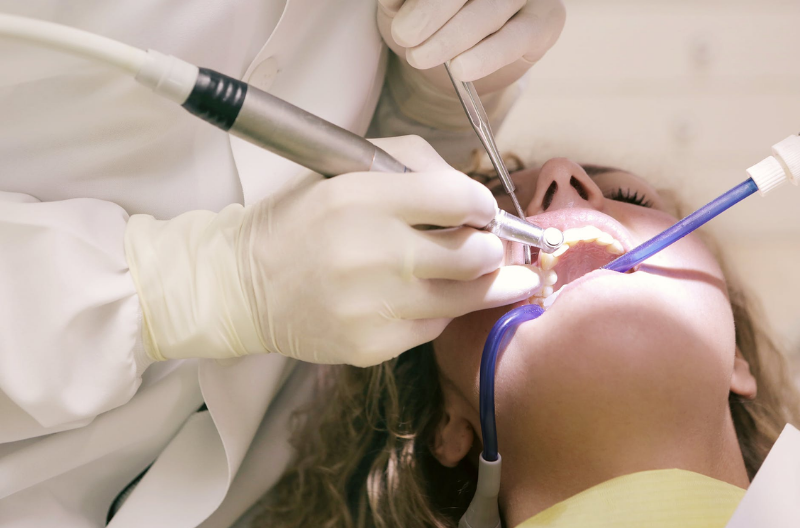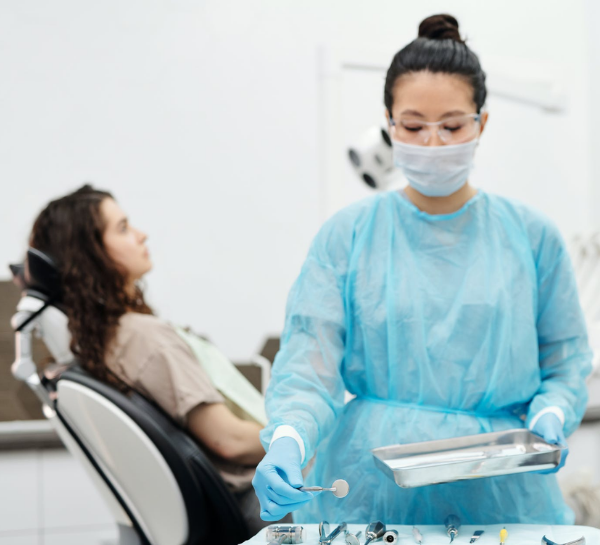
Wisdom tooth removal is a surgical treatment that removes one or more wisdom teeth, which are the four permanent adult teeth positioned at the upper and bottom back corners of the mouth.
If a wisdom tooth does not have enough capacity to develop (impacted wisdom tooth), causing discomfort, infections, or other dental issues, it will most likely need to be extracted. Moreover, even if impacted teeth aren’t presently causing problems, some dentists and oral surgeons suggest wisdom tooth removal to avoid possible future complications.
Are you concerned about the impact of wisdom tooth removal on your sleep? Luckily, if you take the appropriate strategy, you can sleep after wisdom teeth removal. We’ll teach you how to sleep after having your wisdom tooth removed.
How Should I Sleep After Wisdom Teeth Removal?

When your wisdom tooth is removed, you may experience slight pain, transient numbness, discomfort, soreness, or weariness. Since wisdom teeth removal is often performed when the patient is severely medicated or under anesthesia, you will most likely feel fatigued and need sleep following the procedure.
Your dentist should go through all of the following-care recommendations with you after your wisdom teeth have been removed, but if you’re wondering how to sleep after wisdom tooth removal, here’s what you should do.
- Elevate Your Head
For the first several nights after wisdom tooth removal, you should sleep with your head up. When resting on your side, a single pillow should be enough. If you’re having problems sleeping in that posture, stack a couple of pillows beneath you for comfort and lie back.
- Take Prescribed Meds
When the anesthesia fades out, you may experience some pain, and any discomfort may make it difficult for you to fall asleep. Don’t put up any resistance. Instead, prepare for a good night’s sleep by taking your pain medicine as prescribed by your dentist.
- Sleep on Your Side
The tooth removal area may leak during the early stages of recovery. As a result, sleeping on your side is preferable, especially on the first night. Furthermore, if you rest flat on your back, you may feel increased edema. However, this might aggravate your discomfort and make relaxing even more difficult.
- Apply Ice
Applying ice in the first few days after wisdom tooth removal can significantly lessen inflammation. For 10 to 20 minutes at a time, apply an ice pack wrapped in a cloth to your jaw.
- Follow Your Surgeon’s Other Instructions
It’s an excellent idea to follow any additional specific recommendations your surgeon provides you for alleviating your discomfort. Following their advice, you must have no trouble sleeping after wisdom tooth removal.
During the initial stages of healing, the tooth extraction site may ooze. Because of this, sleeping on your side is best, at least for the first night. Plus, if you lie flat on your back, you might experience more swelling. That could increase your pain and make resting an even greater challenge.
HOW TO SLEEP AFTER WISDOM TEETH REMOVAL
When Can You Sleep Normally After Wisdom Teeth Removal?

Elevated sleeping is advised during the first and second days after surgery. Sleep with your head raised for a minimum of 72 hours or until the bleeding has subsided.
Do’s and Don’t After Wisdom Teeth Removal
Things you have to do after the wisdom tooth removal:
- Raise your head. This will assist in reducing the amount of edema you feel.
- For the first 24 to 48 hours, ice your face. Icing will assist in relieving your discomfort and decreasing swelling.
- Bite on the gauze to halt the bleeding. You will no longer need to bite down on the gauze after the bleeding has subsided.
- Stick to a liquid and soft food diet most of the time. As you begin to recover, gradually shift to more challenging meals.
- Open and close your mouth softly to do jaw exercises.
- Drink plenty of fluids; however, not through a straw.
- Take your pain medicine exactly as directed. If you miss a dosage, it will be more difficult to “catch up” and relieve pain later.
- Brush your teeth starting the second day following your operation, but avoid brushing the extraction sites of your wisdom teeth.
- Applying hot water to the extraction area of your wisdom teeth may be relaxing and help recovery.
- If you get a fever which might be a symptom of infection, or have discomfort or swelling that does not go away after following the above instructions, contact your dentist immediately.

Things you shouldn’t do after wisdom tooth removal:
- Avoiding sucking and spitting using straws aids in the maintenance of the blood clot that develops over the extraction point of the wisdom teeth. If the lump gets removed, you may have further bleeding, discomfort, and a condition known as dry sockets.
- Avoid crackers, peanuts, and other hard or pointy foods for at least a week.
- Don’t cleanse your mouth forcibly; however, washing with salt water may be beneficial.
- During the first 48 hours after your tooth extraction removal, you should discontinue utilizing cold packs.
Comment below to share your thoughts and don’t miss our blog on sleeping with joint pain.
